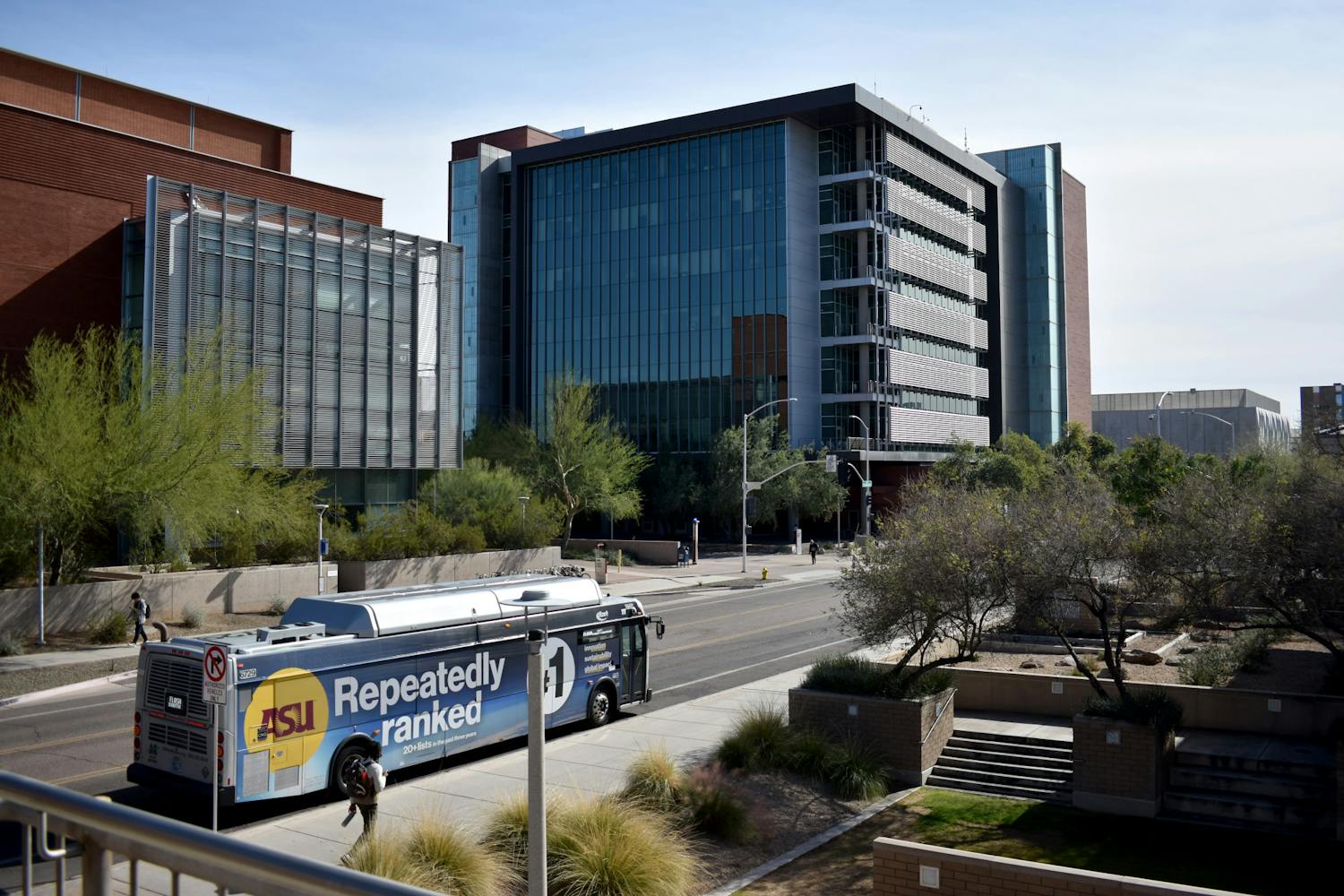Students and faculty members now have the chance to conduct research in Panama through a new partnership with the Smithsonian Institute.
The University and Institute share similar goals and research interests, so the partnership was solidified on Feb. 12.
In addition to research opportunities in Panama, there will be a virtual global classroom where students can interact with researchers from Panama, observe research in progress and contribute.
Lectures and seminars will be held in Panama and brought virtually to students in Arizona.
“Our idea is to have some IT setups that allow us to … [bring] the forests and the animals and the behavior of Panama into our classrooms here and then integrate it into our laboratory exercises or internships,” said Robert Page, dean of the School of Life Sciences and co-director of the new program in Panama.
Page said he foresees having a few ASU classes in Panama, but currently the focus is on the virtual classroom and research projects.
Page and Eldredge Bermingham, from the Smithsonian Tropical Research Institute, help decide which research projects to fund as co-directors, among other responsibilities.
The projects have to fall within specific research areas, including sustainability of ecosystem services and insect behavior, and social structure in changing environments.
ASU was considered for the partnership because of the collaborative organizational structure of his school, Page said.
“The School of Life Sciences is an entity that encompasses a broad spectrum of life sciences without departmental boundaries,” he said.
There were also overlapping interests between ASU and the Smithsonian Institution.
Although Page is a co-director, he’s also working on a research project with insects.
“We’re looking at the origins of social behavior,” he said.
Kate Ihle, a fifth-year biology doctoral student, is helping with Page’s research project in Panama and plans to start her work in July.
Ihle said her interests are in social evolution and behavior, including behavioral genetics in honeybees.
“In Panama, there’s a lot of different bee species that have varying levels of sociality, so it seemed like a perfect place to continue those studies,” he said.
There are two different species of native bees that Ihle will be observing in natural nests, as well as conducting experimental studies where she manipulates the number of bees in the nest.
Ihle is also helping launch the virtual global classroom with live and taped videos, and interactions with scientists.
“I’m really excited about working in the tropics,” she said. “I think it’ll be a really interesting contrast to all the work in the desert environment that I’ve done in Arizona.”
Ann Kinzig, an ecology professor, is one of the principal investigators for another research project in Panama.
This project focuses on the sustainability of ecosystem services at a local and global level. The site of focus in Panama is the Panama Canal watershed.
Ecosystems provide a variety of services to humans and there is a need to know the ecology of that, Kinzig said.
“We need to know how different plant and animal communities managed in different ways might influence ecosystem services,” she said.
There is an economic aspect to the research, Kinzig said.
“If we’re going to manage it in a way that’s consistent with what society values, we need also to know how much people value it,” she said.
The research could apply to other countries, she said.
“We would like to see this be on every continent, this approach to thinking about ecosystem services,” Kinzig said.
The world can benefit from the research in Panama, she said, since the Panama Canal is used as a global shipping lane.
Ted Gilliland, a first-year doctoral student in the School of Sustainability, will be working on the ecosystem services project, focusing on the management side.
People in Panama want to make sure that certain natural resources are available now and in the future, he said.
“That requires some degree of expertise in understanding what the resources are and how they’re useful and then how to determine how to manage them,” Gilliland said.
The research can also be used in broader aspects, he said.
“We hope that there’s sort of some general idea that can be drawn from both the methods that we use in our research and also just for other situations that might be similar,” Gilliland said.
Reach the reporter at reweaver@asu.edu




